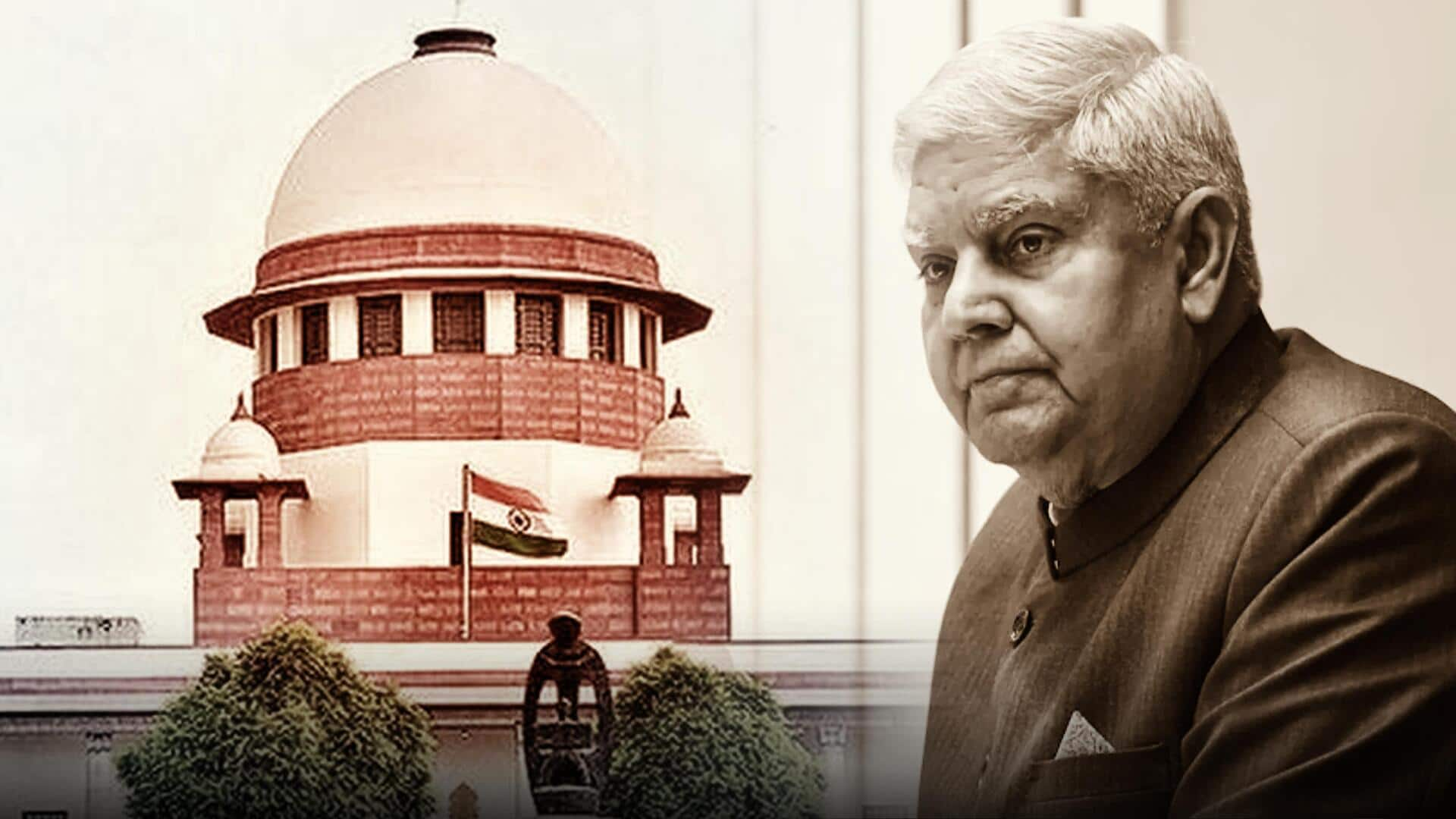
'Elected representatives are ultimate masters': VP Dhankhar attacks SC again
What's the story
Vice President Jagdeep Dhankhar has once again reiterated the supremacy of elected representatives over constitutional matters.
"Elected representatives are the ultimate masters as to what constitutional content will be," he said, adding, "There is no visualization in the Constitution of any authority above Parliament."
"Parliament is supreme. It is as supreme as every individual in the country," he said while addressing a Delhi University event on Tuesday morning.
Judicial authority
Judiciary cannot act as 'super parliament': Dhankhar
Dhankhar's remarks come in the wake of a recent Supreme Court directive, which gave a three-month deadline for the president to take a call on bills pending for approval from governors.
Reacting to the directive, the VP said, "The judiciary cannot play the role of 'super parliament' and get into the domain of the executive."
He had also referred to Article 142 of the Constitution—which empowers the Supreme Court—as a "nuclear missile against democratic forces available to the judiciary 24x7."
Historical reference
Dhankhar cites 1975 Emergency to highlight importance of accountability
In his latest attack, Dhankhar also questioned the court's role during the 1975 Emergency imposed by former Prime Minister Indira Gandhi.
"Why do we celebrate Constitution Day and Samvidhan Hatya Diwas? Because in 1949 the Constitution was adopted. And that Constitution was 'distained rugged' in 1975."
"That time....was the darkest period...because the highest court...ignored the verdict of nine high courts. Nine high courts were informed that democracy's fundamental rights could never be put on hold, but that was done."
Judicial power
VP Dhankhar questions judicial power over President
The vice president also highlighted two contradictory remarks from the Supreme Court.
"In one case, the SC says the preamble is not a part of the constitution (Gorkanath case) and in another case it says it is part of the constitution (Keshavanand Bharti)."
He went on to warn that "our silence might be very dangerous."
"We cannot allow rundown institutions or tarnishing individuals. Every word by the constitutional authority is guided by the constitution," he said.